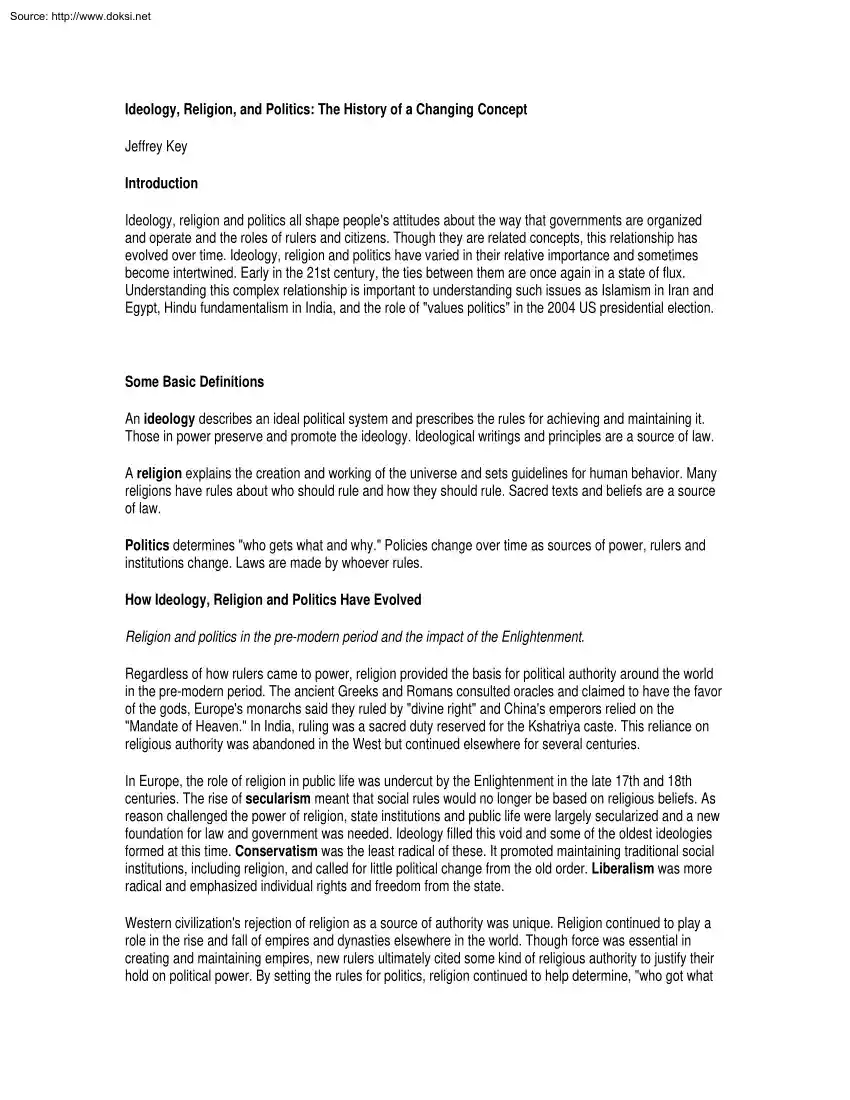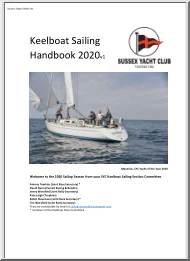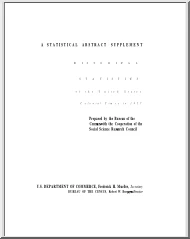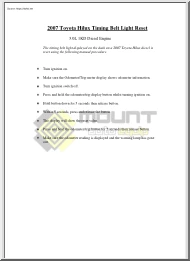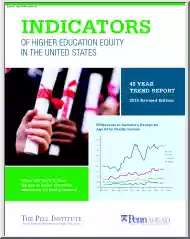Comments
No comments yet. You can be the first!
What did others read after this?
Content extract
Source: http://www.doksinet Ideology, Religion, and Politics: The History of a Changing Concept Jeffrey Key Introduction Ideology, religion and politics all shape peoples attitudes about the way that governments are organized and operate and the roles of rulers and citizens. Though they are related concepts, this relationship has evolved over time. Ideology, religion and politics have varied in their relative importance and sometimes become intertwined. Early in the 21st century, the ties between them are once again in a state of flux Understanding this complex relationship is important to understanding such issues as Islamism in Iran and Egypt, Hindu fundamentalism in India, and the role of "values politics" in the 2004 US presidential election. Some Basic Definitions An ideology describes an ideal political system and prescribes the rules for achieving and maintaining it. Those in power preserve and promote the ideology. Ideological writings and principles are a source of
law A religion explains the creation and working of the universe and sets guidelines for human behavior. Many religions have rules about who should rule and how they should rule. Sacred texts and beliefs are a source of law. Politics determines "who gets what and why." Policies change over time as sources of power, rulers and institutions change. Laws are made by whoever rules How Ideology, Religion and Politics Have Evolved Religion and politics in the pre-modern period and the impact of the Enlightenment. Regardless of how rulers came to power, religion provided the basis for political authority around the world in the pre-modern period. The ancient Greeks and Romans consulted oracles and claimed to have the favor of the gods, Europes monarchs said they ruled by "divine right" and Chinas emperors relied on the "Mandate of Heaven." In India, ruling was a sacred duty reserved for the Kshatriya caste This reliance on religious authority was abandoned in the
West but continued elsewhere for several centuries. In Europe, the role of religion in public life was undercut by the Enlightenment in the late 17th and 18th centuries. The rise of secularism meant that social rules would no longer be based on religious beliefs As reason challenged the power of religion, state institutions and public life were largely secularized and a new foundation for law and government was needed. Ideology filled this void and some of the oldest ideologies formed at this time. Conservatism was the least radical of these It promoted maintaining traditional social institutions, including religion, and called for little political change from the old order. Liberalism was more radical and emphasized individual rights and freedom from the state. Western civilizations rejection of religion as a source of authority was unique. Religion continued to play a role in the rise and fall of empires and dynasties elsewhere in the world. Though force was essential in creating and
maintaining empires, new rulers ultimately cited some kind of religious authority to justify their hold on political power. By setting the rules for politics, religion continued to help determine, "who got what Source: http://www.doksinet and how." Successive dynasties in China relied upon Confucianism Not surprisingly, the state was used to spread the rulers faith. The Gupta Empire (320-467) in India built many Hindu temples while the Moghul Empire promoted Islam there from the 16th-18th centuries. The rise and spread of Western politics and ideologies. The modern nation-state (a sovereign country with a government ruling homogeneous population) came into being in Europe in the 18th and 19th centuries when multi-ethnic kingdoms broke up and people sharing a common language and culture formed states. German unification in the 19th century is a good example of this process at work. These countries needed answers to basic questions about how to arrange and operate their
governments. For example, the organization and makeup of the legislature and its power relative to the executive were key issues. Established countries like Britain also faced institutional problems These political growing pains occurred during a time of rapid social and economic change. Frustration with political arrangements grew as the Industrial Revolution spawned urbanization and the growth of a more complex class system. The new middle class in particular demanded a larger voice and the power of the traditional aristocracy was greatly reduced. Britains Parliamentary Reform Act of 1832 is the clearest example of this process at work. The act took away the then hereditary House of Lords control over nominations for the House of Commons. Social and economic changes and political reforms in the 19th century stirred a philosophical debate in Europe. Governments were not changing fast enough for some intellectuals New ideologies began to develop. Karl Marx (1818-1883) argued that
reforms alone would not go far enough to address the plight of the working class. Socialism called for a redistribution of wealth by the state Other ideologies emerged Some were more radical and others less so. Nationalism promoted the idea of the nation (people sharing a common identity) and advanced its interests over those of outsiders. Ideologies continued to expand their influence in the 20th century and grew even more extreme. In Russia, Marxism was joined with Leninist thought to form communism which promoted violent revolution to achieve a dictatorship of the proletariat. Nationalism took the extreme form of fascism in Germany and called for the suppression of anything that worked against the unity of the state and society. Western politics and ideology also influenced the political development of much of the rest of the world. Though they were motivated by economic gain, Europes imperial powers also spread the Wests secular ideologies to what today we call the Third World
until the mid-20th century. The vast French and British empires had the greatest impact. Conservatism, liberalism, communism and nationalism all found new adherents around the globe. Religion was associated with backwardness As these countries gained their independence from the European powers beginning in the late 1940s, their governments were thus shaped and guided by Western political ideals. Many independence movements in Asia and Africa found Leftist and nationalist ideologies especially attractive. The Cold War struggle in the Third World was over which Western ideology would prevail. The end of the Cold War left these countries to look for political values with roots in their own culture rather than the colonial one. Ideology, religion and politics in the 21st century. Francis Fukuyama proclaimed in his book The End of History that the close of the Cold War marked the worlds turning away from ideology. With the exception of Maoist beliefs that continued to guide rebel groups in
a few far-flung countries like Peru and Nepal, the age of ideology did seem to be at an end. Source: http://www.doksinet However, at the same that ideology was declining, religion began reasserting itself in the form of revivalism in most of the worlds major faiths. Having been diminished in the West by the rise of secular politics and ideology and undercut globally by Western imperialism, religion began a comeback. Movements in many former colonies began looking to religion to rediscover their political as well as their cultural identities. Fundamentalism stressed early religious practices and the strict interpretation of sacred texts as the basis not just for religion but politics as well. Groups claiming sacred authority for their political actions now seek to take power and influence politics and policies. Religion is being used in the same way that ideology had been used earlier. Fundamentalists beliefs resemble ideologies because they claim absolute authority and do not allow
for competing ideas or sharing power. In some cases, the emphasis on gaining political power is so great that the movement becomes more ideological than religious. For example, the promotion of political Islam is now referred to as Islamism to distinguish it from the religion. Except for the collapse of communism, Islamism is the most important trend in world politics in recent decades. Though Iran is an overwhelmingly Shiite Muslim country (Shiites make up roughly 20% of the worlds Muslims), the 1979 Iranian Revolution energized all Muslims. Lead by bearded and robed Shiite clerics, the revolution dramatically marked the return of religion to discussions about ideology and politics. Earlier revolution like those in France, Mexico, Russia and China had all sought to drive religion out of public life. In Iran, the regime of Shah Reza Pahlavi that was overthrown was thoroughly Western and secular and this revolution sought to create an Islamic state. The new leaders were clear about the
relationship between religion and politics. Senior clerics had the power to censure politicians whom they thought were misguided and to veto laws that they deemed to be "un-Islamic." A quarter-century after the revolution, Iran’s Council of Guardians continues to oversee the government and clerics play prominent roles in most aspects of public life. Critics condemn Iran as a theocracy (government by religious authorities) but this label overlooks the fact that the country has many characteristics of a functioning democracy such as political parties and regular elections. Sunni fundamentalist groups became more visible in the 1990s. The Salafist movement is the most significant fundamentalist movement in the world today. The names of some groups associated with it, including al-Qaeda, regularly appear in the headlines of major newspapers. How widespread is this movement? Every country with a significant Muslim population has some Salafist groups. What do Salafist groups
believe? Salaf means "ancestors." The movements central belief is that the earliest Muslim community in 7th century Arabia was an ideal society where there was no distinction between religious and political authority. Islamic fundamentalism is not unique. Other major religions have produced their own powerful fundamentalist movements. Militant Hinduism has had a large impact on Indias politics And like the Salafists, this movement seeks to increase its influence over Indias public life and to spread its message. The rise of Hindu fundamentalism gained attention with the emergence of the Bharatiya Janata Party (BJP) in the 1990s. The BJPs promotion of Hindutva (Hindu-ness or rule according to Hindu principles) and aggressive posture toward Indias non-Hindu minorities has softened somewhat but it continues to enjoy the support of militant groups that wield considerable power at the regional level in India. Two important realities about the relevance of religion to understanding
comparative government and politics must be noted. First, religion has played a role in politics dating back to the earliest times Even the rise of fundamentalism is not a wholly new phenomenon. Religious revival groups formed in Muslim countries and in India while they were still under colonial rule. These groups contributions were overshadowed by the post-colonial ruling parties that grew out of independence movements. The second important fact is that the impact of religion on politics is not limited to the Third World. Editorials about the 2004 US presidential election argue that a large number of voters were motivated by what they perceived to Source: http://www.doksinet be the excessive secularization of American public life. These voters pointed to the banning of prayer in schools and the removal of public religious displays as evidence of this marginalization of their beliefs. Conclusions and Suggestions Discussing ideology and politics can create friction even among
friends. Adding religion to the mix makes such discussions still more difficult. Classroom teachers face a dilemma Explaining the relationship between ideology, religion and politics is both sensitive and challenging but it is also necessary if students are to make sense of government and politics in diverse countries. Key Terms • • • • • • • • ideology religion politics the Enlightenment secularism Conservatism Liberalism Socialism • • • • • • • • Nationalism Communism Fascism fundamentalism Islamism theocracy Salafist Hindutva Questions for Discussion 1. 2. 3. 4. 5. Identify several ancient empires and several modern ones. What was the basis for their rule? List several major revolutions. What was their impact on religion? Identify several major ideologies and their core belief. What do ideology and religion have in common? How do they differ? How many examples of religious fundamentalism can you identify around the world?
law A religion explains the creation and working of the universe and sets guidelines for human behavior. Many religions have rules about who should rule and how they should rule. Sacred texts and beliefs are a source of law. Politics determines "who gets what and why." Policies change over time as sources of power, rulers and institutions change. Laws are made by whoever rules How Ideology, Religion and Politics Have Evolved Religion and politics in the pre-modern period and the impact of the Enlightenment. Regardless of how rulers came to power, religion provided the basis for political authority around the world in the pre-modern period. The ancient Greeks and Romans consulted oracles and claimed to have the favor of the gods, Europes monarchs said they ruled by "divine right" and Chinas emperors relied on the "Mandate of Heaven." In India, ruling was a sacred duty reserved for the Kshatriya caste This reliance on religious authority was abandoned in the
West but continued elsewhere for several centuries. In Europe, the role of religion in public life was undercut by the Enlightenment in the late 17th and 18th centuries. The rise of secularism meant that social rules would no longer be based on religious beliefs As reason challenged the power of religion, state institutions and public life were largely secularized and a new foundation for law and government was needed. Ideology filled this void and some of the oldest ideologies formed at this time. Conservatism was the least radical of these It promoted maintaining traditional social institutions, including religion, and called for little political change from the old order. Liberalism was more radical and emphasized individual rights and freedom from the state. Western civilizations rejection of religion as a source of authority was unique. Religion continued to play a role in the rise and fall of empires and dynasties elsewhere in the world. Though force was essential in creating and
maintaining empires, new rulers ultimately cited some kind of religious authority to justify their hold on political power. By setting the rules for politics, religion continued to help determine, "who got what Source: http://www.doksinet and how." Successive dynasties in China relied upon Confucianism Not surprisingly, the state was used to spread the rulers faith. The Gupta Empire (320-467) in India built many Hindu temples while the Moghul Empire promoted Islam there from the 16th-18th centuries. The rise and spread of Western politics and ideologies. The modern nation-state (a sovereign country with a government ruling homogeneous population) came into being in Europe in the 18th and 19th centuries when multi-ethnic kingdoms broke up and people sharing a common language and culture formed states. German unification in the 19th century is a good example of this process at work. These countries needed answers to basic questions about how to arrange and operate their
governments. For example, the organization and makeup of the legislature and its power relative to the executive were key issues. Established countries like Britain also faced institutional problems These political growing pains occurred during a time of rapid social and economic change. Frustration with political arrangements grew as the Industrial Revolution spawned urbanization and the growth of a more complex class system. The new middle class in particular demanded a larger voice and the power of the traditional aristocracy was greatly reduced. Britains Parliamentary Reform Act of 1832 is the clearest example of this process at work. The act took away the then hereditary House of Lords control over nominations for the House of Commons. Social and economic changes and political reforms in the 19th century stirred a philosophical debate in Europe. Governments were not changing fast enough for some intellectuals New ideologies began to develop. Karl Marx (1818-1883) argued that
reforms alone would not go far enough to address the plight of the working class. Socialism called for a redistribution of wealth by the state Other ideologies emerged Some were more radical and others less so. Nationalism promoted the idea of the nation (people sharing a common identity) and advanced its interests over those of outsiders. Ideologies continued to expand their influence in the 20th century and grew even more extreme. In Russia, Marxism was joined with Leninist thought to form communism which promoted violent revolution to achieve a dictatorship of the proletariat. Nationalism took the extreme form of fascism in Germany and called for the suppression of anything that worked against the unity of the state and society. Western politics and ideology also influenced the political development of much of the rest of the world. Though they were motivated by economic gain, Europes imperial powers also spread the Wests secular ideologies to what today we call the Third World
until the mid-20th century. The vast French and British empires had the greatest impact. Conservatism, liberalism, communism and nationalism all found new adherents around the globe. Religion was associated with backwardness As these countries gained their independence from the European powers beginning in the late 1940s, their governments were thus shaped and guided by Western political ideals. Many independence movements in Asia and Africa found Leftist and nationalist ideologies especially attractive. The Cold War struggle in the Third World was over which Western ideology would prevail. The end of the Cold War left these countries to look for political values with roots in their own culture rather than the colonial one. Ideology, religion and politics in the 21st century. Francis Fukuyama proclaimed in his book The End of History that the close of the Cold War marked the worlds turning away from ideology. With the exception of Maoist beliefs that continued to guide rebel groups in
a few far-flung countries like Peru and Nepal, the age of ideology did seem to be at an end. Source: http://www.doksinet However, at the same that ideology was declining, religion began reasserting itself in the form of revivalism in most of the worlds major faiths. Having been diminished in the West by the rise of secular politics and ideology and undercut globally by Western imperialism, religion began a comeback. Movements in many former colonies began looking to religion to rediscover their political as well as their cultural identities. Fundamentalism stressed early religious practices and the strict interpretation of sacred texts as the basis not just for religion but politics as well. Groups claiming sacred authority for their political actions now seek to take power and influence politics and policies. Religion is being used in the same way that ideology had been used earlier. Fundamentalists beliefs resemble ideologies because they claim absolute authority and do not allow
for competing ideas or sharing power. In some cases, the emphasis on gaining political power is so great that the movement becomes more ideological than religious. For example, the promotion of political Islam is now referred to as Islamism to distinguish it from the religion. Except for the collapse of communism, Islamism is the most important trend in world politics in recent decades. Though Iran is an overwhelmingly Shiite Muslim country (Shiites make up roughly 20% of the worlds Muslims), the 1979 Iranian Revolution energized all Muslims. Lead by bearded and robed Shiite clerics, the revolution dramatically marked the return of religion to discussions about ideology and politics. Earlier revolution like those in France, Mexico, Russia and China had all sought to drive religion out of public life. In Iran, the regime of Shah Reza Pahlavi that was overthrown was thoroughly Western and secular and this revolution sought to create an Islamic state. The new leaders were clear about the
relationship between religion and politics. Senior clerics had the power to censure politicians whom they thought were misguided and to veto laws that they deemed to be "un-Islamic." A quarter-century after the revolution, Iran’s Council of Guardians continues to oversee the government and clerics play prominent roles in most aspects of public life. Critics condemn Iran as a theocracy (government by religious authorities) but this label overlooks the fact that the country has many characteristics of a functioning democracy such as political parties and regular elections. Sunni fundamentalist groups became more visible in the 1990s. The Salafist movement is the most significant fundamentalist movement in the world today. The names of some groups associated with it, including al-Qaeda, regularly appear in the headlines of major newspapers. How widespread is this movement? Every country with a significant Muslim population has some Salafist groups. What do Salafist groups
believe? Salaf means "ancestors." The movements central belief is that the earliest Muslim community in 7th century Arabia was an ideal society where there was no distinction between religious and political authority. Islamic fundamentalism is not unique. Other major religions have produced their own powerful fundamentalist movements. Militant Hinduism has had a large impact on Indias politics And like the Salafists, this movement seeks to increase its influence over Indias public life and to spread its message. The rise of Hindu fundamentalism gained attention with the emergence of the Bharatiya Janata Party (BJP) in the 1990s. The BJPs promotion of Hindutva (Hindu-ness or rule according to Hindu principles) and aggressive posture toward Indias non-Hindu minorities has softened somewhat but it continues to enjoy the support of militant groups that wield considerable power at the regional level in India. Two important realities about the relevance of religion to understanding
comparative government and politics must be noted. First, religion has played a role in politics dating back to the earliest times Even the rise of fundamentalism is not a wholly new phenomenon. Religious revival groups formed in Muslim countries and in India while they were still under colonial rule. These groups contributions were overshadowed by the post-colonial ruling parties that grew out of independence movements. The second important fact is that the impact of religion on politics is not limited to the Third World. Editorials about the 2004 US presidential election argue that a large number of voters were motivated by what they perceived to Source: http://www.doksinet be the excessive secularization of American public life. These voters pointed to the banning of prayer in schools and the removal of public religious displays as evidence of this marginalization of their beliefs. Conclusions and Suggestions Discussing ideology and politics can create friction even among
friends. Adding religion to the mix makes such discussions still more difficult. Classroom teachers face a dilemma Explaining the relationship between ideology, religion and politics is both sensitive and challenging but it is also necessary if students are to make sense of government and politics in diverse countries. Key Terms • • • • • • • • ideology religion politics the Enlightenment secularism Conservatism Liberalism Socialism • • • • • • • • Nationalism Communism Fascism fundamentalism Islamism theocracy Salafist Hindutva Questions for Discussion 1. 2. 3. 4. 5. Identify several ancient empires and several modern ones. What was the basis for their rule? List several major revolutions. What was their impact on religion? Identify several major ideologies and their core belief. What do ideology and religion have in common? How do they differ? How many examples of religious fundamentalism can you identify around the world?
